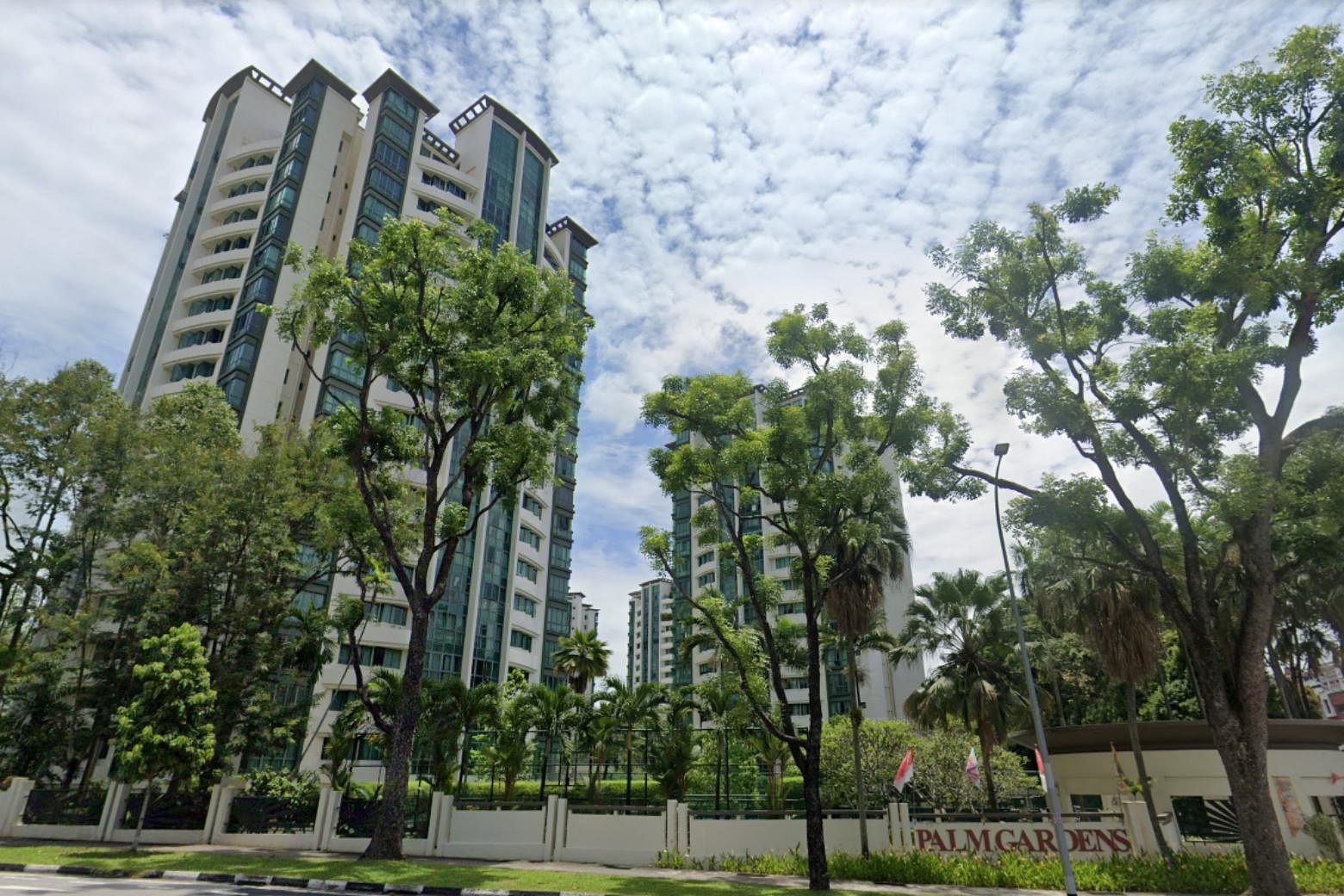Wrong for condo shop owner to get reserved seat on management council, rules Strata Titles Board
Sign up now: Get ST's newsletters delivered to your inbox

The dispute centred on whether Palm Gardens was considered a mixed-use development.
PHOTO: SCREENGRAB FROM GOOGLE MAPS
SINGAPORE - Without having been nominated, the owner of a minimart within a Choa Chu Kang condominium automatically became a member of the property's management council.
Six aggrieved home owners challenged this, arguing that the decision to reserve a council seat for the shop owner was wrong in law.
The dispute centred on whether Palm Gardens, which has 694 residential units and a separate shop unit, was considered a mixed-use development.
Under the Building Maintenance and Strata Management Act, at least one council seat must be reserved for each class of use in mixed-use developments.
Last month, the Strata Titles Board agreed with the six home owners that the presence of one shop unit did not make the condominium a mixed-use development.
Thus, the shop owner was not automatically entitled to a council seat and his appointment should therefore be invalidated.
However, the board said it would be a waste of time, effort and money to call for an extraordinary general meeting to elect a replacement, as the current office bearers' term will expire on Sept 24.
The three-member board ordered the condo's management corporation to pay the six "justifiably aggrieved" home owners a total sum of $1,600 in costs.
The dispute arose from the management council elections in November last year.
The representative for the condo's managing agent who helped conduct the elections took the position that the property was a mixed development and thus, one council seat was reserved for the minimart owner.
The other 13 council members were elected through the regular nomination process.
The six home owners, who own three units among them, took the case to the board. They sought orders for the election results to be invalidated, new elections to be held, and a new managing agent to be appointed.
They argued that the approval of a shop within the development did not alter the land use from residential to commercial and residential.
They said the shop serves residents and is not accessible to the public.
They added that the Building and Construction Authority and the Urban Redevelopment Authority stated in e-mail correspondence that the property is classified as a residential development.
The management corporation argued that the shop was a commercial unit and hence, the condo is a mixed-use development.
It argued that the shop owner was rightly allotted a reserved seat on the council without having to be voted in.
It argued that the board was not obliged to act in accordance with the opinions of the authorities.
The board disagreed that the presence of both residential units and a commercial unit in the property made it a mixed-use development.
The board added that such "ancillary shops" in condominiums are allowed to operate only under limited circumstances.
As the shop is not open to the public, the contention that the property is a mixed-use development is not supported, said the board.
The matter is now on appeal to the High Court over the proper interpretation of the relevant provision under the Act.


